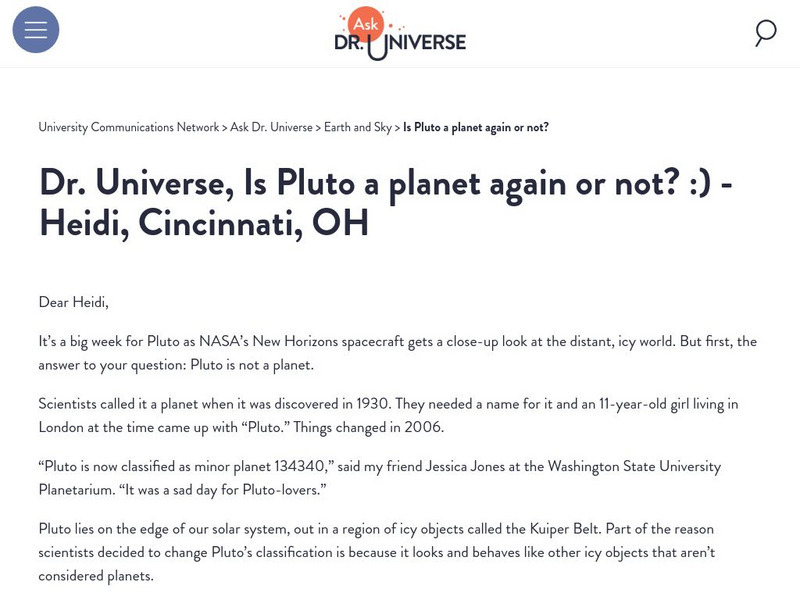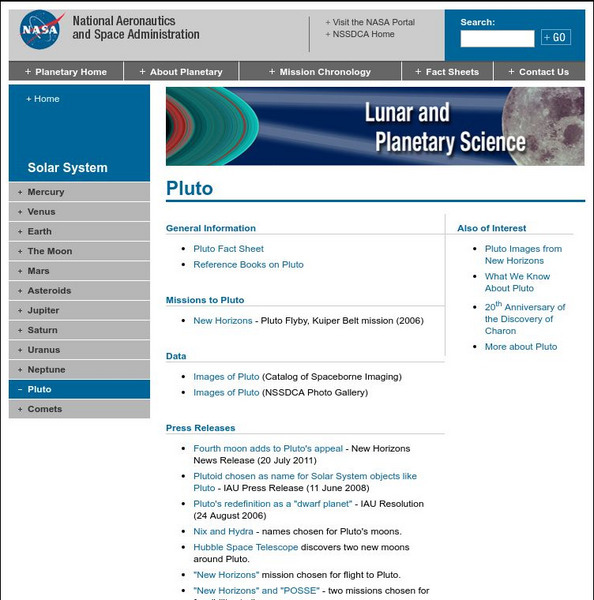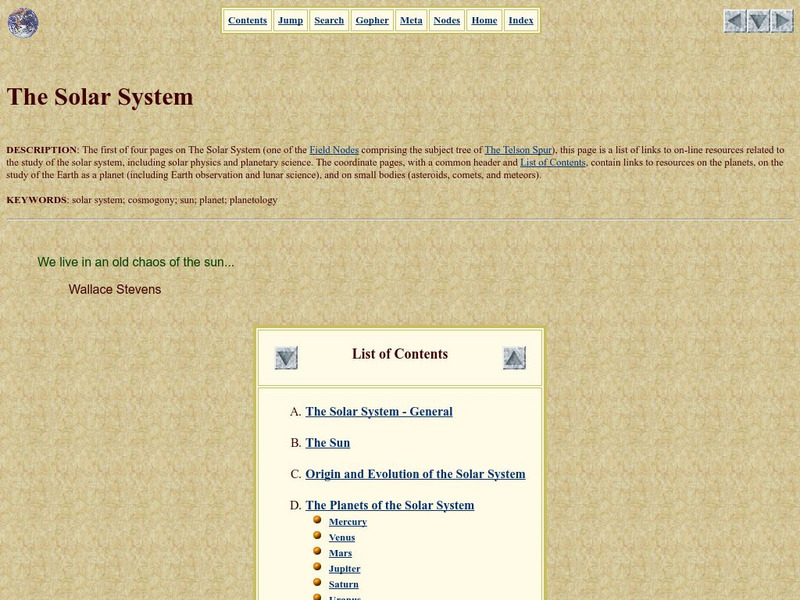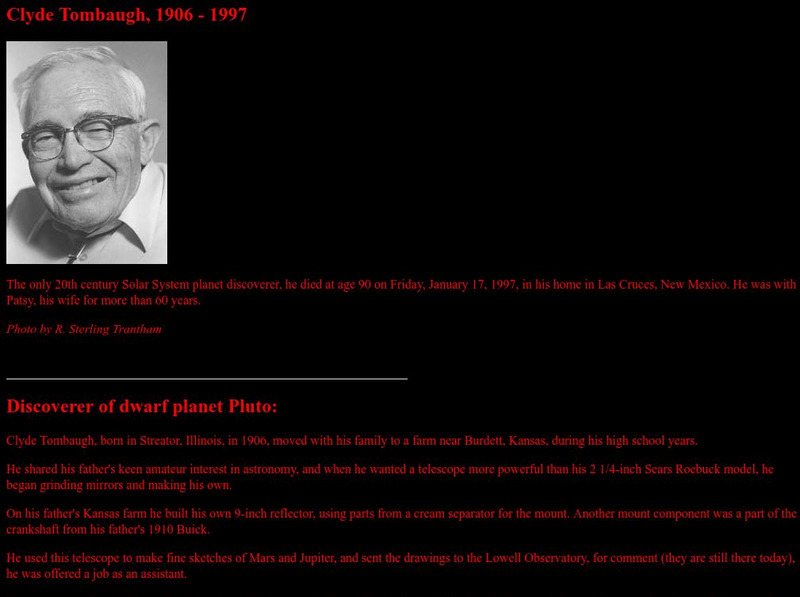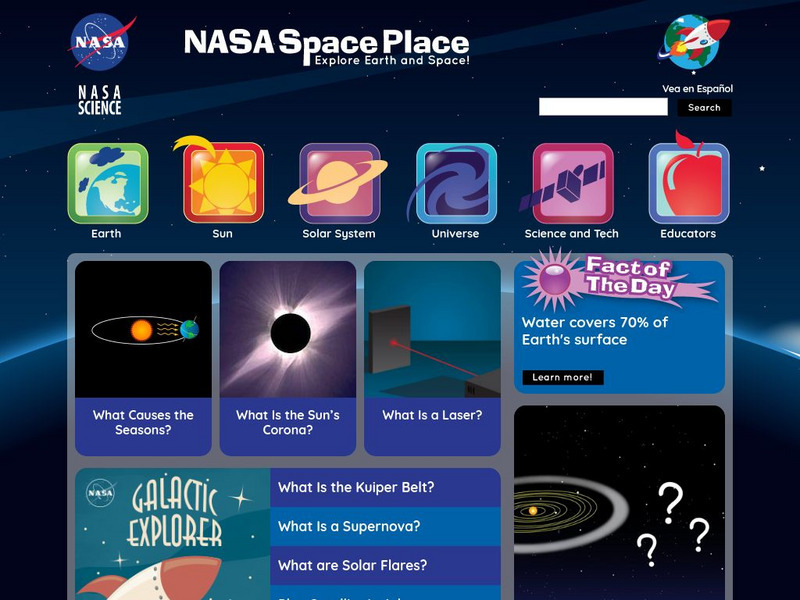Hi, what do you want to do?
Washington State University
Washington State University: Ask Dr. Universe: Is Pluto a Planet Again or Not?
Dr. Universe answers this question after talking with WSU's Katie Cooper. Katie is an expert in the geology of Earth and objects in outer space.
NASA
Nasa Space Science Data Archive: Pluto
This site, which is provided by the National Space Science Data Center of NASA, is a site with detailed information about Pluto, including planned missions to explore the planet in greater detail.
Read Works
Read Works: Mission Pluto
[Free Registration/Login Required] An informational text about Pluto being classified as a dwarf planet. A question sheet is available to help students build skills in reading comprehension.
Famous Scientists
Famous Scientists: Michael E. Brown
This article discusses the life and scientific discoveries of Michael E. Brown. Learn how he is credited with downgrading Pluto from a planet to dwarf planet.
Nine Planets
The Eight Planets: Just for Kids
Here is a clear, simple picture of the solar system. Click on the names of the planets to learn more about each. Clicking on underlined terms takes you to more and more detailed scientific information.
California Institute of Technology
The Discovery of Eris, the Largest Known Dwarf Planet
Until the discovery of Eris, Pluto was known as the largest Keiper belt object. This dwarf planet has replaced Pluto in size and is accompanied by a satellite that has been given the name Dysnomia. Learn about this distant world here...
Harvard University
Harvard University: The Solar System
These hands-on activities are a great way for students to gain perspective on the relative sizes and distances of each planet, the relationship between the sun and Earth, and much more.
Other
The Telson Spur: The Solar System
This is a list of links to online resources related to the study of the planets. It has a literary theme associated with the Lewis Carrol poem "The Hunting of the Snark" with many quotes from literature and science. Navigation tools...
Other
Observatorio Arval: Clyde Tombaugh
This is a biography page for the American astronomer and discoverer of Pluto, Clyde Tombaugh.
NASA
Nasa: The Space Place: Hail King of the Ice Dwarfs
This resource provides a nice overview of Pluto. Get information on Pluto's size, tilt, orbit and surface features. There is also a brief explanation of the "New Horizons" space probe.
California Institute of Technology
Cool Cosmos: Ask an Astronomer: Neptune
Resource provides a deeper look at the planet Neptune. Just click on the frequently asked question link and dive into knowledge.
Enchanted Learning
Enchanted Learning: Zoom Astronomy
Where is our Solar System? How far away is the sun? What makes up the sun? Find out all you want to know about our solar system. This is a comprehensive on-line site about space and astronomy. Check out all of the excitement!
NASA
Nasa: The Space Place
This site from NASA's Space Place is geared towards early elementary learners. It offers detailed instructions for crafts and activities related to space, games and a teacher resource area. Students can also ask an expert at this site.
Other
Canal Kids: Ciencias (Science for Portuguese Speakers)
Colorful, engagingly written information about astronomy and biology for Portuguese-speaking English language learners. Both subjects are broken down into a broad array of related subtopics. The biology section is particularly helpful...





